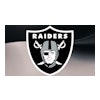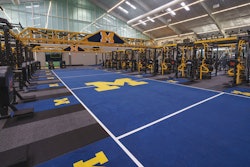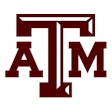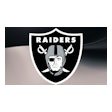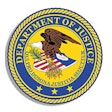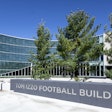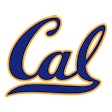"Losing to Win: Discussions of Race and Intercollegiate Sports," a two-day conference hosted by Wake Forest University in April, was billed as the largest summit of its kind. But the discussion ranged into several non-race-specific areas - from student-athlete exploitation to head injuries.
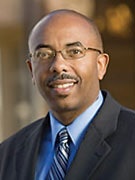 Photo of Wake Forest University law professor Timothy Davis
Photo of Wake Forest University law professor Timothy Davis"Losing to Win: Discussions of Race and Intercollegiate Sports," a two-day conference hosted by Wake Forest University in April, was billed as the largest summit of its kind. But the discussion ranged into several non-race-specific areas - from student-athlete exploitation to head injuries. Wake sociology professor Earl Smith and law professor Timothy Davis spent more than a year assembling leading authorities to examine, as Davis puts it, "the world of college sports that we don't like to think about and oftentimes don't like to talk about." Papers authored by conference presenters will appear in Wake Forest's Journal of Law & Policy, to be published early next year. Paul Steinbach asked Davis, a member of the board of advisors for the National Sports Law Institute and co-author of The Business of Sports Agents, to talk about three issues facing the NCAA.
Q: The NCAA reports that 30 minority coaches joined the collegiate football coaching ranks over the past three years, yet fewer than one in eight FBS programs are headed by minorities. What did your panelists say about minority hiring?
A: The sense was that progress has been made, but all the panelists spoke to the need to continue to exert pressure, or certainly invest in trying to see that the momentum is not lost and that pipelines are developed so that African-Americans have realistic opportunities for head coaching positions, particularly in football. There was one person who advocated incorporating something akin to the NFL's Rooney Rule. Another person disagreed, because from her perspective the Rooney Rule relies too much on the good faith of those involved, particularly when you look at the influence that alumni have on decisions made by athletic directors.
Q: During March Madness, NCAA president Mark Emmert reiterated that student-athletes are not employees and should not be paid. Do you agree?
A: I think there should be more compensation. Certainly they should be compensated to the extent that the current scholarships fail to cover all living expenses in addition to tuition and room and board. Now, to the extent that athletes should be paid some type of salary, at one point in time, even five years ago, I was opposed to that, because I think it certainly ran contrary to the notion of amateurism. But now that I see the substantial sums of money that are being made by various institutions and individuals off of men's basketball and football, I think something needs to happen so we can arrive at greater equity.
Q: On May 6, the NCAA received a letter from the U.S. Justice Department asking about the BCS system and why a playoff is not used to determine a national champion. Where do you stand?
A: You heard the recent news surrounding the Fiesta Bowl and its lavish expenditures, and the question I have is how much of that goes on with respect to other bowls? It gets back to that question of exploitation - groups of individuals benefitting from the service of student-athletes. On the other hand, there are concerns with going to a playoff system and the number of games that would be played during the season, particularly with respect to the increased risk of injury to student-athletes, as well as a potential negative impact on academics. This is one where I'm really torn - putting aside antitrust concerns - between the academic and physical health of the student-athletes on the one hand, and the fairness of the system on the other.














